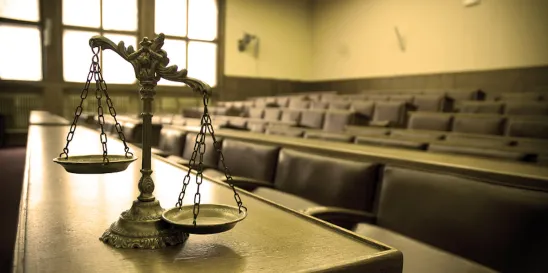The US Court of Appeals for the Second Circuit vacated a grant of summary judgment made prior to discovery, holding that the district court abused its discretion in finding a draft contract agreement admissible under Federal Rule of Evidence (FRE) 1003 notwithstanding sworn testimony questioning its contents. Eric A. Elliott, aka Fly Havana v. Joseph Anthony Cartagena et al., (2d. Cir. Oct. 17, 2023) (Merriam, Nardini, JJ.)
The dispute in this case centered on whether Eric Elliott was properly credited and compensated for his contribution in writing the song “All the Way Up.” Both Elliott and Joseph Anthony Cartagena (also known as “Fat Joe”) acknowledged that Elliott had signed an agreement regarding the song, but both parties were unable to locate the original agreement. Instead, Cartagena submitted a draft that he claimed was an authentic duplicate. This draft purported to assign all of Elliott’s rights to the song to an entity.
Elliott disputed the authenticity of the draft, claiming that there were numerous additional and different material terms in the agreement he signed. Nonetheless, the district court found the evidence admissible under FRE 1003 and 1004 and entered summary judgment in favor of defendants prior to discovery being conducted in the case. Elliot appealed.
The Second Circuit concluded that the district court abused its discretion and vacated. FRE 1002, also known as the “best evidence rule,” states that “[a]n original writing . . . is required in order to prove its content unless these rules or a federal statute provides otherwise.” If an original document is unavailable, a duplicate may still be admissible under FRE 1003, which states: “A duplicate is admissible to the same extent as the original unless a genuine question is raised about the original’s authenticity or the circumstances make it unfair to admit the duplicate.”
Here, the district court relied on Cartagena’s sworn testimony that he printed the draft at the complex where he lived and brought it with him to a meeting with Elliott. The district court disregarded Elliott’s sworn testimony in response to Cartagena, which suggested that the draft was not identical to the version Elliott signed. While the draft specified that the rights to the song would be assigned to an entity, Elliott averred that the version he signed “seemed to state that [he] was going to be compensated and credited as a writer.” Given this factual dispute, the Second Circuit held that the district court abused its discretion in admitting the draft as a duplicate under FRE 1003 and granting summary judgment, particularly without the benefit of discovery.
The Second Circuit concluded that there was a genuine factual dispute as to whether Elliott validly assigned all his rights and whether any such purported assignment precluded Elliott’s claims. Given the issues regarding the authenticity of the draft and the genuine dispute of material fact, the Court found summary judgment improper.
However, a duplicate may also be admissible under FRE 1004, which states: “[a]n original is not required and other evidence of the content of a writing . . . is admissible if: (a) all the originals are lost or destroyed, and not by the proponent acting in bad faith; [or] (b) an original cannot be obtained by any available judicial process.” While documents admitted under FRE 1003 can be treated as interchangeable with the original, the probative value of documents admitted under FRE 1004 is subject to further scrutiny, as such evidence is often circumstantial.
For purposes of the present dispute, the Second Circuit found that the district court was correct in finding the draft admissible under FRE 1004. Cartagena conducted a months-long effort, consisting of four subpoenas and 19 attempts to serve Cartagena’s former manager, whom Cartagena thought might have had the original. There was no evidence of bad faith on the part of Cartagena. The Second Circuit also concluded that the district court correctly found that the original agreement could not be obtained by any available judicial process because of Cartagena’s failed attempts to serve his former manager.
Thus, the Second Circuit concluded that while Cartagena could introduce the draft as evidence under FRE 1004, the evidence here was not so overwhelming as to establish the terms of the draft as a matter of law before discovery. It was the province of the finder of fact to determine how much weight to accord the draft considering all the evidence.




 />i
/>i
